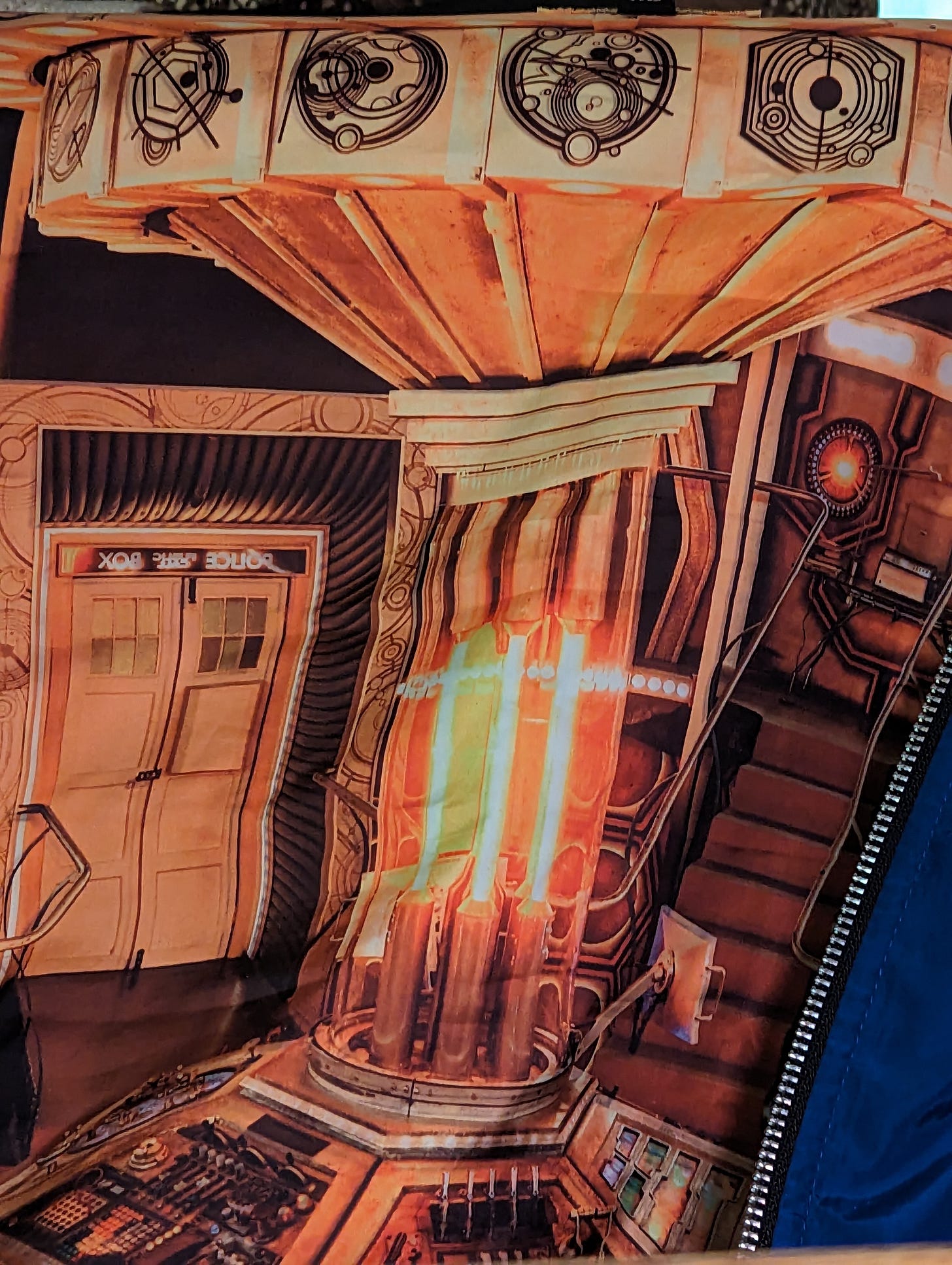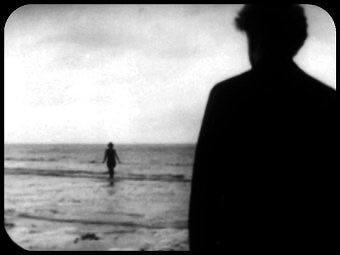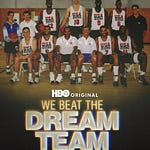Yo…
We are in the debt of 4.4 million viewers.
The day after JFK was assassinated at 5:16 p.m. on Saturday November 23, 1963 the first episode of Doctor Who was transmitted.
The first episode was watched by 4.4 million viewers; mostly kids who decided to check out this strange man and his odd TARDIS.

A children’s television series that kicked off with An Unearthly Child. 60 years later that’s all they’ve been gloriously producing. We’ve been reaching out to the stars ever since.
Thank you to all the "Unearthly Children" who watched those first few seasons and got us here 60 years later.
Shout out to Canadian producer Sydney Newman and friends for creating Doctor Who.
And it all started with 4.4 million viewers.
We consistently fail to praise and credit the first kids for their magnanimous work.
Shout out to all the kids who bought Action Comics #1 for 10 cents on April 18, 1938.
I’m so grateful for all the kids who invested in Detective Comics #27 on March 30, 1939. Batman’s dope.
All of these kids are saints. If popular culture was a Catholic Church these early readers and ground floor viewers would be immortalized in the stained glass windows.
All the kids who watched Twilight Zone and O.G. Star Trek and read Fantastic Four #1 and checked out Amazing Spider-Man #1…thank you so so so much.
Because of your curious passions and willingness to take a risk and stick with bizarre tales populated with outlandish characters we nerdily reap what you have sowed. So much so that…
We take time travel for granted.
Do you know how hard…how difficult it is to explain time travel to a 12 year old kid in 1963?!
Yes Flash Gordon and Buck Rogers and even Superman were floating around. The Time Machine by H. G. Wells was published in 1895 so the concept wasn’t new…new.
But the consistent access to a lot of this early science-fiction was limited. For us it’s a weekly or even daily diet. Thankfully distribution and access has been steadily increasing since the 1980s.
And so…for these 1963 people―indeed…our society―they had to be taught to have a suspension of disbelief. It’s bigger on the inside. Chew on that!
That’s the beautiful legacy of Doctor Who (and before that…The Twilight Zone.).
British people had just survived WWII (starting on September 7, 1940, London was systematically bombed for 56 of the following 57 days and nights an event known as the London Blitz). They’d lost so much and so many and were now suddenly grappling with an assassinated American president. The horror of all that doesn’t instantly fade away like a thick morning fog.
And yet with all that unsettled anguish they just learned watching the first Doctor Who episode...TARDIS stands for Time And Relative Dimension in Space. Apparently a TARDIS can travel in time and space.
That’s mind blowing.
In 2019 I interviewed Nicholas Parisi who wrote Rod Serling: His Life, Work, and Imagination. (He serves on the Board of Directors of the Rod Serling Memorial Foundation.)
I didn’t understand the chicken and egg with nerdery. Everything post-Twilight Zone which premiered on October 2, 1959 has notable Zone elements. From M Night twist endings to defiantly clinging to one’s humanity in a dystopia.
But how did Rod Serling pull off TV nerdery before The Twilight Zone…before Doctor Who and before Star Trek?
Nicholas Parisi agreed with me saying: “Rod Serling basically educated the mass public, the mass audience, in the foundations of science fiction and fantasy. He taught them what it’s all about on television. And they just…they hadn’t seen that before. And you’re absolutely right. He would get letters, CBS would get letters all the time saying, I don’t understand this episode, what happened? It doesn’t make sense. And it was just, they had to be taught to have that willing suspension of disbelief.” [italics are me!]
When it aired Twilight Zone had low ratings. The network didn’t get it. The sponsors didn’t get it. And as Nicholas Parisi pointed out Twilight Zone got a legion of letters and criticism all boiled down to “I don’t get it.” I don’t get this show…I don’t get this concept.
Time Travel is a joke: you either get it or you don’t. I can explain it but it doesn’t make sense which is exactly why it makes…sense.
Nerd or not: everybody in 1985 instantly got Back to the Future. A non-Eric Stoltz kid from 1985 is trapped in 1955 thanks to a time-traveling DeLorean automobile built by his eccentric scientist friend. And now if he doesn’t Tinder his parents he’ll cease to exist.
Nobody is phased by any of this. Back to the Future is such a beloved movie that we rarely talk about the time travel. We talk about all the other aspects and they make us laugh.
Most folks don’t even consider Back to the Future to be a sci-fi movie. (Yet it totally is!)
We take time travel for granted.
We still do. Since 1963 we’ve visited mirror worlds, alternative universes (even one where the allies lost and Hitler won!), the multiverse, we’ve travelled in time, we’ve visited countless planets and can name numerous (fictional) aliens. More often then not we’ve seen alien invasions halted and magical individuals save either the Earth and/or the entire Universe.
We take time travel for granted. We’ll never be the people who write letters to CBS saying I don’t get it. This doesn’t make sense. (If anything we’ll probably write letters to CBS say this is great…make more of this!)
But in 1963 an entire generation of children had to be taught how to suspend their disbelief and accept weird aliens and strange planets and alternative universes all at face value.
The following week they reported to their playgrounds and vulnerably shared their impressions of Doctor Who. They recommended it to other kids. They crapped on it. They argued about it. They laughed about it.
They did the Holy Work of nerds…they watched the miracles and went out proselytizing, spreading the good news and converting non-viewers.
Doctor Who only gets a 60th anniversary because someone somewhere openly shared it: “You know what’s fresh?”
We are in awe of 4.4 million viewers. These kids willingly accepted the challenge to suspend their disbelief. It all started with them.
That’s a truly stunning legacy. Well done Doctor Who!
The attached audio clip is from a 2017 interview I did with local legend and rapper More or Les.
He shares how his (deep) Doctor Who fandom prompted Bigger On The Inside: A Time Traveller's Mixtape released on November 4, 2013. Some Doctor Who beats if you will…
~~
Ever since I’ve been a wee-lad I’ve happily consumed science fiction across all mediums from comics and books to movies to TV shows.
There’s a high death rate in that genre compared to say rom-coms. It’s not always happy E.T. endings.
Alien gave us the quintessential tagline: In Space, No One Can Hear You Scream. That was 1979 and it’s been true since then.
As such across all mediums I’ve seen aliens murder humans. I’ve seen torn spacesuits and running out of oxygen. I’ve seen noble sacrifices from Spock to Bruce Willis in Armageddon.
I’ve seen rogue computers and technology breakdown with all kinds of horrible results.
More often than not...leaving Earth and going into space is a Suicide Mission. Especially if you’re wearing a red shirt.
Space returns mankind to his cave-man days where danger and death is a constant diet. And discovering fire is not gonna help...it actually makes things worse.
I’m used to death and I accept the grim risks of sci-fi space stories. November 18 was Steven Moffat’s birth date and I gotta give the dude credit. He crafted one of the darkest sci-fi deaths I’ve ever seen in a Doctor Who episode. This is easily a Top 5 sci-fi death.
Miss Evangelista is dying...her consciousness is evaporating and Doctor Who can’t do anything but be with her until she literally fades away.
His companion Donna Noble implores the Doctor to do something. Resolved and resigned, Tennant says to her...
“She’s a footprint on the beach, and the tide’s coming in.”
Oh, yo! That went so dark and so hard.
I was drinking tea first time I watched that episode and I hadda put it away. I’m cool with Weeping Angels and other dark things but a line like that that cuts.
(Also is she saying "I screamed" to answer Doctor’s who screamed question or is she accepting death and saying “ice cream” as her final human comfort...Hello darkness, my old friend.)
It’s fantastic humans have focused on going to the Moon and even to Mars...it is one of the best things human beings do.
It is noble and impressive and inspiring. And yet the things I’ve seen...there’s no way I am going into space.
Not when people perish like this.
The modern incarnation of Doctor Who launched in 2005 was sparked by Russell T Davies.
In The Guardian he eloquently wrote about his first Doctor Who experience:
“My first proper memory of television? I can date that with absolute precision, because I’m a Doctor Who fan, and we love the facts. I was three years and 188 days old, 29 October, 1966, The Tenth Planet, Episode Four.
The First Doctor, William Hartnell, fell to the floor of the Tardis and regenerated into Patrick Troughton. I was agog. Terrified. OK, I barely knew what was happening, but I felt a deep, unnerving sense of strangeness and fear twisting in the pit of my heart. Did that moment shape my entire life? Well, here I am.”
Amazing. He’s one of the early kids we owe a grateful debt to.
In the same dispatch he expands on that with another fiery Who-related experience:
“I think that spark burns quietly inside so many of us. Smouldering since those days when everyone watched. A few weeks ago, I went to have my hair cut. The new barber glared at me, a tough, gnarly, squinting Scotsman. I was a bit terrified. Far too scared to turn round and walk out. He sat me down and asked me what I do. I said that I work on Doctor Who. “Never watch it,” he barked. OK.
But then he drifted. He smiled and got a faraway look in his eyes. He said he did watch it when he was a wee lad. Tea with mum and dad then the TV on a Saturday night. He remembered how scared he was, one week, when a woman simply walked into the sea.
I said: ‘That’s Fury from the Deep! From 1968! That was Maggie Harris, possessed by a Weed Monster from under the North Sea, walking to her death.”
I told him he could go and watch it again, on the BBC iPlayer, 55 years later. He laughed and said he might, and then we talked about everything – TV and family and life and love and loss. All because of an old TV show.”
That’s the beautiful legacy of Doctor Who.
Doctor Who is 60 years old but not retiring anytime soon…
Sammy Younan
-28-
Sammy Younan is the affable host of My Summer Lair podcast: think NPR’s Fresh Air meets Kevin Smith: interviews & impressions on Pop Culture.














Share this post